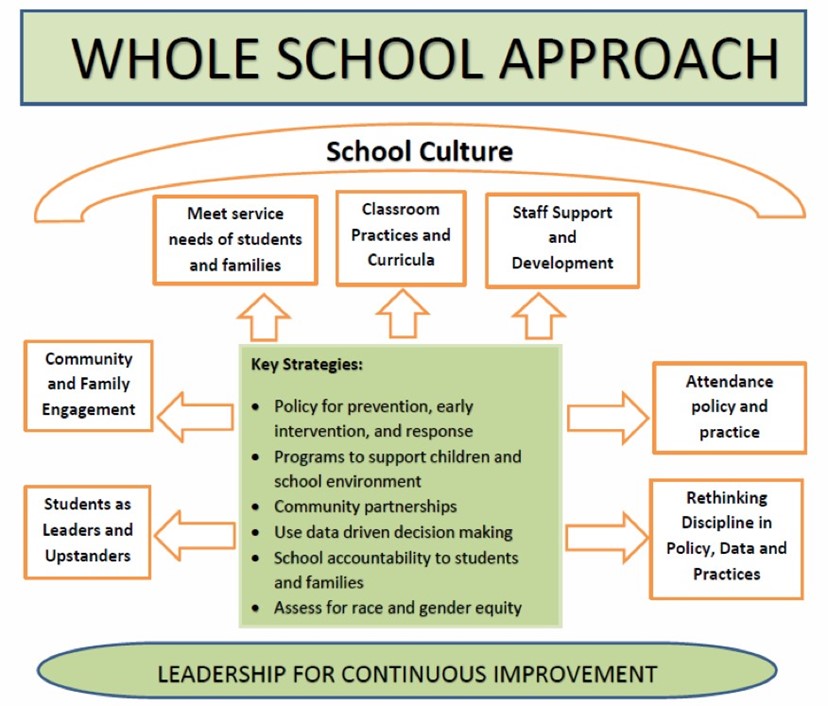4. Whole-School Approach: Integrating Well-being into Sustainable Development
4.2 Meaning of Whole School Approach
WSA can be understood as shared and collective responsibility for developing and meeting the needs and requirements of a child by everyone in the school. The Whole School Approach helps the schools to optimize the possibilities and probabilities for all students to achieve their highest potential. The framework’s objective is to ensure that every student achieves holistic well-being and successful learning outcomes by 2030 through a comprehensive approach to education. This approach integrates student well-being promotion into school policies, curriculum, structures, and practices, emphasizing the collective responsibility of all stakeholders. By treating well-being as fundamental to the school’s mission, it acknowledges its role in academic success and underscores the school’s duty to foster the overall development of students. Whole-school programs, adopt an integrated strategy, implement interventions across daily practices and school culture, involve all staff, extend support beyond classrooms to areas like hallways and playgrounds, encourage parental involvement, and collaborate with external organizations.
 The key components of the Whole School Approach are:
The key components of the Whole School Approach are:
- Cultivating a main supportive, safe, and inclusive school culture: This involves creating an environment where all members of the school community feel valued, respected, and supported. It entails fostering a sense of belonging and acceptance for everyone, regardless of their background or differences.
- Implementation of school-based programs involving in and out of the classroom, focusing on social-emotional learning and individual differences: Schools should integrate programs and activities that promote social-emotional skills such as empathy, self-awareness, and conflict resolution. These initiatives help students develop positive relationships, manage emotions effectively, and appreciate diversity within the school community.
- Establishing school policies that prioritize, monitor, and report on progress for all students, with a specific focus on eliminating disparities: Schools need to develop policies that prioritize the well-being and academic success of every student. This includes monitoring and evaluating student progress regularly to identify and address any disparities in achievement or access to resources. By implementing data-driven policies, schools can ensure equitable opportunities for all students.
- Ø Forming school partnerships to bring community programs and resources into the school setting: Collaboration with community organizations, businesses, and other stakeholders is essential for providing comprehensive support to students and their families. By leveraging external resources and expertise, schools can enhance their capacity to meet the diverse needs of students and create a more inclusive learning environment. These components work together to create a holistic approach to promoting mental health and well-being in schools, addressing not only academic achievement but also the social, emotional, and cultural development of students.

